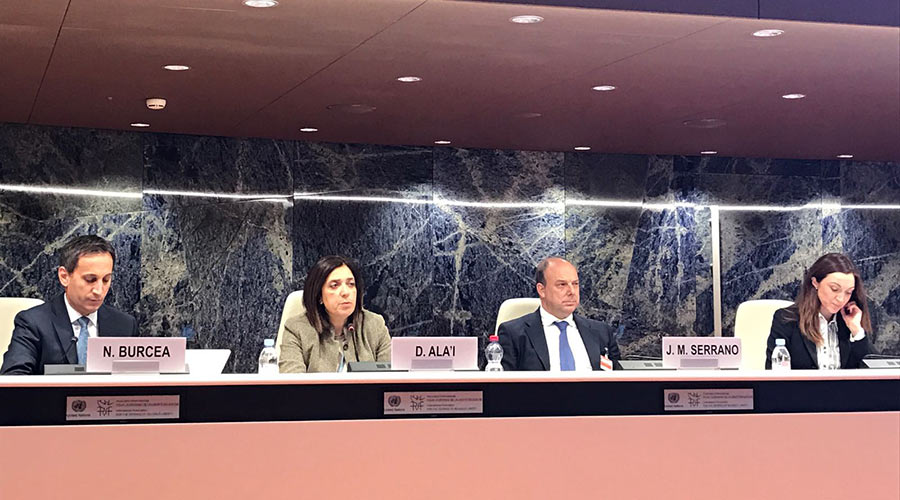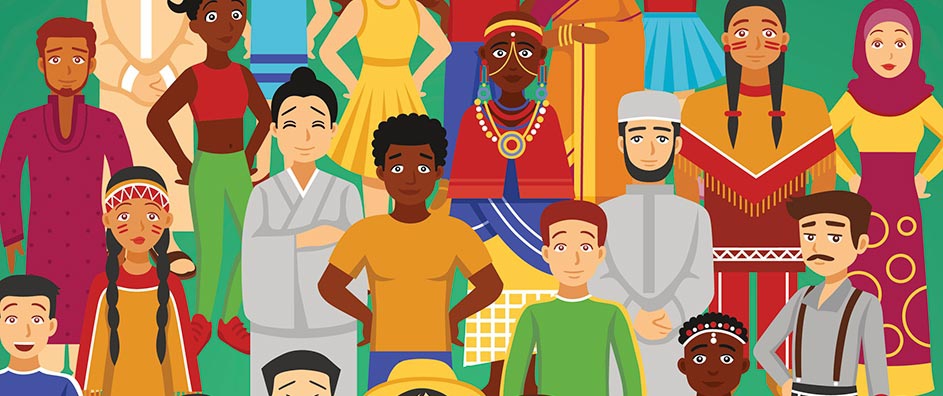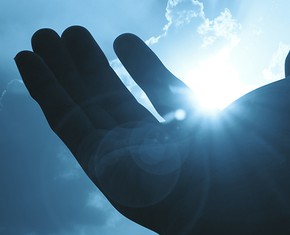Can the world’s religions abandon claims of exclusivity and finality?
Building inclusive societies requires profound change in mindsets, stated the Baha’i International Community (BIC) in a keynote address at the recent Global Summit on Religion, Peace and Security held from 23 to 25 November at the Palace of Nations in Geneva.
With the support of the European Union and the government of Spain, the event was co-organized by the United Nations Office on Genocide Prevention and the Responsibility to Protect as well as the International Association for the Defense of Religious Liberty. It focused on the role and importance of religious freedom in preventing violent extremism and atrocity crimes and explored the relationship between them.
Participants included the UN Special Adviser on the Prevention of Genocide, Adama Dieng; Senior Advisor on Culture at the United Nations Population Fund, Azza Karam; Ambassador at Large for Alliance of Civilizations, Ministry of Foreign Affairs and Cooperation of Spain, Belen Alfaro Hernandez; and European Union Special Envoy for the Promotion of Freedom of Religion or Belief outside the EU, Jan Figel, among others.
Addressing the forum, Diane Ala’i, representative of the Baha’i International Community to the United Nations in Geneva, spoke about the critical role that religious leadership plays in cultivating inclusive and tolerant mindsets. “Building peaceful societies and safeguarding freedom of religion and belief depend on the abandonment of claims of exclusivity and finality by religious leaders,” she said.

Diane Ala’i, representative of the Baha’i International Community to the United Nations in Geneva, discussed the importance of cultivating unity between diverse populations. “Living side by side is not enough,” she explained. “People of different faiths must learn to live together.”
Ms. Ala’i also discussed the importance of cultivating unity between diverse populations. “Living side by side is not enough,” she explained. “People of different faiths must learn to live together.”
“We are finding,” she continued, “that collective service to the common good is a powerful factor in dispelling misunderstandings between people.”
Again, is there any deed in the world that would be nobler than service to the common good? Is there any greater blessing conceivable for a man, than that he should become the cause of the education, the development, the prosperity and honor of his fellow-creatures? No, by the Lord God! The highest righteousness of all is for blessed souls to take hold of the hands of the helpless and deliver them out of their ignorance and abasement and poverty, and with pure motives, and only for the sake of God, to arise and energetically devote themselves to the service of the masses, forgetting their own worldly advantage and working only to serve the general good. – Abdu’l-Baha, The Secret of Divine Civilization, p. 103.
Drawing on the example of the Baha’i community’s response in Iran to state-sponsored persecution, she explained, “The community has been able to contribute to the changing of hearts and minds in the country through the constructive resilience it has demonstrated in the face of decades of oppression, working shoulder to shoulder with fellow citizens for the betterment of Iranian society.
“In its constructive approach to social change, it has witnessed a rising level of support from fellow Iranians within and outside of the country in recent years.”
















Comments
Sign in or create an account
Continue with Googleor